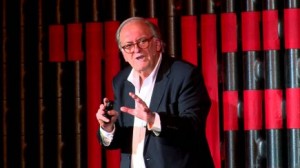The modern organization is fluid. People are not necessarily assigned to one place, one team, even one single role. The old problem of tacit vs. explicit knowledge has not gone away. It’s worse. Tacit is in people’s head, explicit in some sort of written Standard Operating Procedure and knowledge databases, the old answer said.
Does an organization truly learn? Or is this a literary figure of speech that we have invented to comfort ourselves with a sense of progress? Do we perhaps say that the organization learns because people inside learn? When we have 100 people learning in a corporate university set up, can we say that this is a learning organization?
People learn. That is clear. It’s also clear that unlearning is as important as learning. Having learnt too much may be an obstacle for innovation.
Processes and systems kind of learn. There will be routines established and processes, and ways of doing, and these may have been improved or modified regardless who was there at the time. Some of that ‘learning’ may be captured, some not.
Cultures learn. Oh yes they do. Particularly in the unwritten rules and the informal side of the organization. Directions in the unwritten side can change very quickly. Routines and ‘social algorithms’ may change just because they are not supported or approved or reinforced. Cultures learn to survive, to reward fast, to punish fast, to suffocate, and to enlighten.
Big Data is also Big Memory. How to manage it and take advantage is another issue. How much ‘learning’ is accumulated in the internal vault of Big Data?
Still today, how to utilize tacit knowledge is the issue. A whole layer of so called ‘middle management’ has disappeared in many places as a cost cutting exercise rationalised as getting rid of the ‘blockers’. (Apparently when a middle manager blocker is promoted to senior manager, is not a blocker anymore but a leader). That layer was the main repository of collective memory. Where is it now? And does it matter?
One recurrent issue in this area is the one that I am representing live in this Daily Thought: mistaking memory and learning. Of course they go together. But are they the same? Surely not.
This is an open question to leadership. How do we translate individual learning (training, sending people to the business school, corporate university, lectures..) into collective, organizational learning? I said ‘learning’ not short term impact. When those elite troops come back from the Big Business School, do they come more skilled? Enlightened? Ready to act? Is this ‘organizational learning’? I have hardly ever seen organizational progress of any size after the comeback from the guys from that programme at Harvard, or Insead, or… Is the benefit supposed to be individual? Expensive private tuition?
I am afraid I am just elevating the confusion to a higher level with randomly unconnected thoughts.
________________________________________________________________________________________________
Organizational Change Post Covid-19.
Watch our Feed Forward Webinar Series. Now available on demand.
To change to ‘the new normal’ we must think and act differently in the management of our organizations. WATCH our 5, free webinars as Dr Leandro Herrero and his team of organizational architects, debunk uncontested assumptions and uncover the alternatives, whilst considering why this is even more relevant today in the current exceptional environment.
Have your critical thinking brain, switched on. It’s a serious business. It may also be fun.
- The Myths of Change
- Can you put your organization through an MRI?
- The Myths of Company Culture
- The Myths of Management
- High tech, high touch in the digitalization era

________________________________________________________________________________________________
Dr Leandro Herrero is the CEO and Chief Organization Architect of The Chalfont Project, an international firm of organizational architects. He is the pioneer of Viral ChangeTM, a people Mobilizing Platform, a methodology that delivers large scale behavioural and cultural change in organizations, which creates lasting capacity for changeability.
Dr Herrero is also an Executive Fellow at the Centre for the Future of Organization, Drucker School of Management. An international speaker, Dr Herrero is available for virtual speaking engagements and can be reached at: The Chalfont Project.
His latest book, The Flipping point – Deprogramming Management, is available at all major online bookstores.




Would you like to comment?